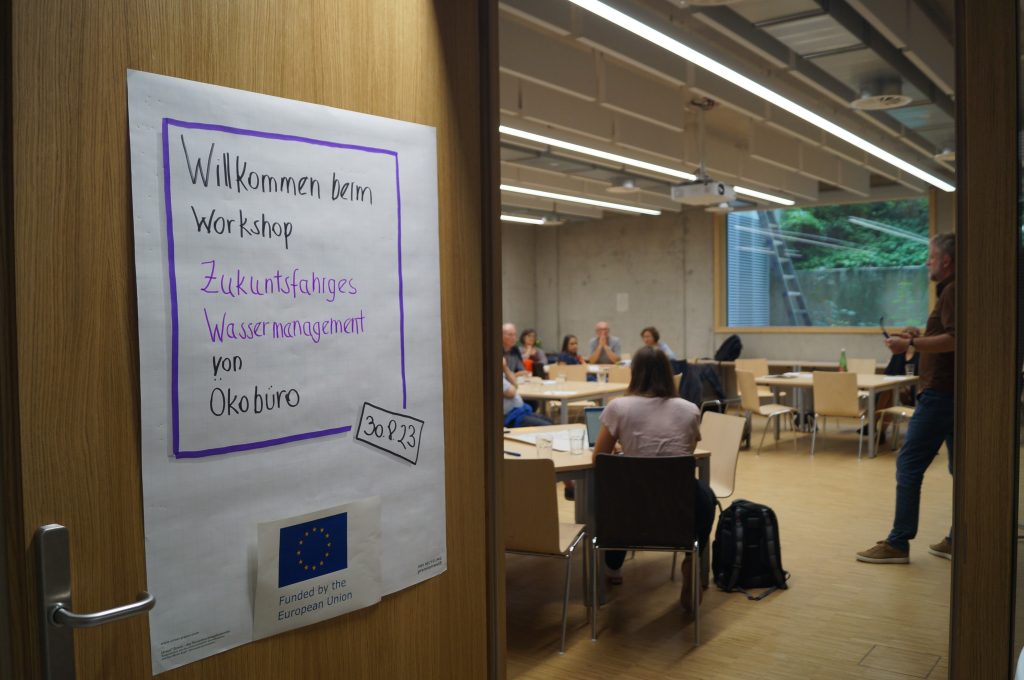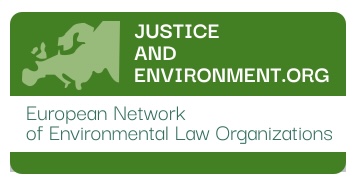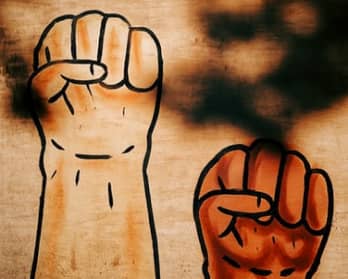

On 30 August, 2023, the Alliance of the Environmental Movement (ÖKOBÜRO) in Austria organised the event “Sustainable Water Management – Proposals for Dealing with Water in Times of Climate Crisis”. The event took place at the Vienna University of Natural Resources and Applied Life Sciences. It was part of the international initiative Discussions and Actions on Climate and the Environment (DACE), which aims to raise people’s awareness of their climate rights. The event was organised in cooperation with the European Justice and Environment (J&E) network and funded by the European Union (EU).
Drought as a Challenge
Many participants had come from East Austria and various areas of Lower Austria, which are seriously affected by drought.
Lisa Weinberger, deputy executive director of the Alliance of the Environmental Movement (ÖKOBÜRO) opened the event. She spoke about some water challenges caused by the climate crisis – among which dry periods, extreme precipitation and severe weather events.
Assoc. Prof. Dr. Norbert Kreuzinger, head of the Water Quality Research Group at the Vienna University of Technology, spoke about the state of water balance in Austria. While some parts of Austria are currently affected by drought, others suffer from extreme precipitation. He pointed out that public discourse mainly revolves around the problem of drought and floods. However, the connection between watercourse runoff and biodiversity is not discussed professionally. The same holds for the problem of precipitation shifting to different periods of the year and the conflicts of water use between agriculture and industry.
Another problem he mentioned was water quality. He identified fluctuating water temperatures in water basins, the increasing occurrence of chemicals and the inpour of unhealthy substances during heavy rainfall as particularly problematic.
According to Kreuzinger, the current legal framework adequately addresses the need for better water management in the context of climate change. Unfortunately, he said the implementation of measures at the municipal or district level is often inadequate – due to lack of expertise, among other things.
Water Law and Climate Change Adaptation
Charlotte Vogl, Head of the Department of Water Law and Water Economics at the Federal Ministry of Agriculture, Forestry, Regions and Water Management, explained the role of the Water Act (WA) in dealing with and adapting to the climate crisis. The law has two main purposes: on the one hand, monitoring water availability and water quality and on the other hand, distributing water resources and protecting those affected by water issues. Vogl also outlined what she saw as priority resource management principles:
1. Saving water (using state-of-the-art recirculation systems that ensure economical use);
2. Maintaining the functionality of water systems;
3. Taking precaution measures and increasing the availability of water;
4. Shared use, as well as prioritising allocation in the event of resource scarcity.
Based on these principles, Vogl saw the following positive developments and deficits in the implementation of the WA:
- The WA requirement for saving water has been met
- Supplies of drinking water have also been secured by the provisions of the WA.
Vogl emphasised the potential of regional programmes. However, she said, Austria was lagging behind in rehabilitating water bodies to achieve the good (ecological) status required by the EU Water Framework Directive (WFD).
Discussion in groups: problems and solutions
After the presentations, event participants identified several urgent problems and came together in groups to identify solutions. The problems named were: extreme weather events, disappearing surface waters, conflicts of water use between agriculture and industry, protecting biodiversity and water basins.
Group discussions and result presentations
Extreme Weather Events
Instances of property damage and personal injury are increasing. The group outlined the following potential measures for dealing with this:
- greening, shading (i.e., structures that provide sun shade during heat waves) and unsealing (i.e. removing asphalt to replant grass and trees)
- spatial planning adapted to extreme weather events
- renaturation of water courses
- planting mixed forests instead of monocultures
- linking renaturation measures and flood protection measures
- improving insurance systems
- stopping glacier degradation.
Disappearing Surface Waters & Water Retention
The problems the group identified were:
- overly rapid precipitation runoff
- lack of surface water retention
- poor maintenance of drainage systems
- poor watercourse maintenance
- no areas for ecological watercourse measures
Some solutions identified were:
- controlling groundwater extraction
- prohibiting construction in low-lying areas
- designating areas for water bodies
- securing funding for water ecology measures.
Conflicts of water use between agriculture and industry
The problems the group identified were:
- sparse data available (especially on groundwater extraction from private wells)
- poor distribution of responsibilities
- problems inherited from past decades (i.e. old planning measures like drainage systems that took no account of water protection).
Solutions identified:
- holistic renaturation
- establishing the true costs of groundwater extraction and its overall use.
- decarbonising industry
- comprehensive land unsealing.
Biodiversity & Water Protection
Some problems the group identified:
- long or unlimited permits
- complying with residual water quantities
- improving the passability of rivers and streams (e.g. free-flowing watercourses for at least 10 km).
The initiative Discussions and Actions on Climate and Environment is funded by the European Union and coordinated by J&E in partnership with the International Institute for Law and the Environment (IIDMA, Spain), BlueLink Foundation (Bulgaria), The Alliance of the Austrian Environmental Movement (ÖKOBÜRO, Austria), the Environmental Management and Law Association (EMLA, Hungary), the Legal Center for Human Rights Protection (PIC, Slovenia), and the Estonian Environmental Law Centre (EELC, Estonia).
Views and opinions expressed are however those of the author(s) only and do not necessarily reflect those of the European Union or or of the granting authority – the European Education and Culture Executive Agency (EACEA). Neither the EU nor EACEA can be held responsible for them.

